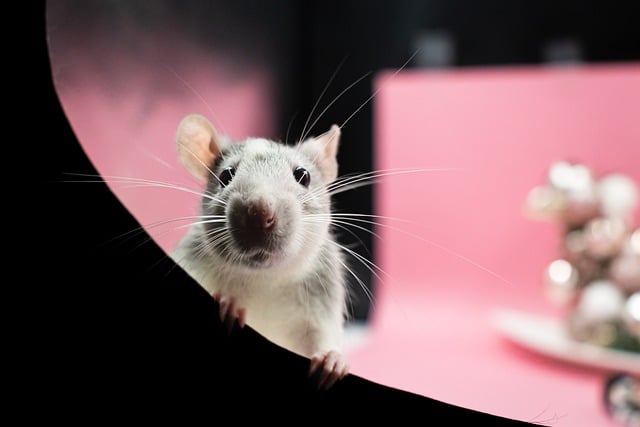Rats are really annoying little creatures.
They come inside our homes, feed on everything they can find, destroy everything we have worked for, and hold dear. They also like to nest and breed in our basements or attics. To sum up, they come to our homes because we can offer them everything they need to survive and live happy lives.
But I’m sure that most people don’t like having these uninvited guests in their homes. This is why they try to rid of them in any way possible.
Fortunately, there are a lot of ways to do that. You can hire traps, poisons and exterminators to do everything for you. But if you want to act smart, you should think about prevention. And having rats in your home can be prevented very easily.
The only thing you need to do is to spread smells rats don’t like all over your house.
What type of odours will deter rats in your house?
Rats dislike three types of odours: chemical, predator, and natural smells.
However, these deterrents should be used with more efficient preventive measures such as sealing gaps in walls, storing food in sealed containers, keeping the house clean, and trapping rats when spotted.
While these repellents alone may not be enough to control rodents in a home, they can temporarily relieve infestation.
Natural smells
Natural smells are likely the least effective among the three odours that repel mice, for rats can survive in foul-smelling environments such as sewers.
Therefore, if these rodents have already become accustomed to strong odours, natural repellents may have a limited impact. And some mulch, for example, will give off a smell that will even attract rats to your garden, so it’s best to keep that in mind too.
- Peppermint – Yes, rats really don’t like the smell of peppermint. They just don’t entirely like the sweet smell of it. But this doesn’t mean you can spread sugar all over your house and expect to fix everything because they like sugar. And not only them – ants, cockroaches and many other unpleasant pests feel strongly attracted to the smell of sugar. But the peppermint has a very specific smell, which is sweet and spicy at the same time, so the rats just can’t stand it and run away from it. You can use it if you rent a storage unit to protect things like your books, for rats have no problem chewing on those or using them for making nests.
- Garlic – I know many people dislike garlic because of its specific smell and taste, but rats hate it, just like vampires. If you want to sleep well at night and not worry about these sneaky creatures coming into your home, you should spread some garlic around the property. You can locate it mainly around the walls, windows, doors and any other potential entry point to your house. This way, they won’t even dare to come near you.
- Chilli – The hot chilli is also a very good rat repellent. Turns out, rats just don’t like spicy things. But it won’t keep them from entering your home if you place them inside. The chilli should be spread all around the house, not inside it. The rats will try to eat it at first because it smells like tomatoes. After they feel the burning sensation, they will run away as quickly as possible. Also, a very good repellent like that is curry and black pepper. The spicy food is just not in their dietary preferences, I guess.
- Eucalyptus has a strong aroma that can deter rats from nesting in a home. Some homeowners choose this essential oil over peppermint because it has a more subtle scent. Instead of using undiluted drops of eucalyptus oil on a cotton ball, it is generally diluted in concentrations of 5%, 10%, or 20%. A diluted eucalyptus solution should be sprayed daily along their usual pathways to keep rats away.
- Citronella – It is commonly used as a repellent for mice, but it can also be effective at deterring rats. Spraying citronella oil in certain areas can cause rats to avoid food present in those areas. In addition, the scent of citronella can reduce the appetite of rats. Exposure to citronella oil scent can significantly reduce body weight for rats due to a decrease in their appetite.
Chemical smells
Commercially available rodenticides contain chemicals that are effective at killing or repelling mice.
However, the major issue with these repellents is that the chemicals are hazardous to both pets and humans and the rodents they are intended to target.
When utilising the following chemicals as rat deterrents at home, it is critical to read the label first to avoid poisoning or other health risks.
- Ammonia – Ammonia is used as a rat deterrent because it replicates the scent of rat predators, such as cats. Mix two cups of the chemical with water and 2 tablespoons of detergent to use ammonia as a rodent repellent in your home. Place a bowl of the solution in an area where rats are likely to pass.
- Bleach – While bleach is commonly used as a household cleaning agent, it can also function as a mouse deterrent. To prevent the smell of bleach from becoming overwhelming in your home, it should be diluted with water. In addition to deterring mice, bleach can disinfect areas contaminated with rat droppings, blood, and urine.
- Mothballs – They consist of naphthalene in solid form. However, it requires a substantial amount of these substances to impact mice significantly. Furthermore, the scent of naphthalene can persist in the area even after the mothballs have been removed. This is why they are not recommended for households with pets and children.
Predator smells
Rodents have been part of the diet of all felines for ages, which is why the former find their smell horrifying.
- Cat urine – Cat urine is also a very strong repellent for rats. But we’re not sure why they hate it so much. There are two basic theories. The first one claims that rats just don’t like the smell of ammonia. Therefore, cat urine is full of it, so it seems logical to use it. The other theory is that they are just afraid of cats, and the smell of cat urine makes them think there is a cat in the house. It doesn’t really matter which one it is. All that matters is that it actually works. This is because no rats will step through the door if you have a cat or at least have cat litter somewhere around.
- Animal hair – Rats have really strong senses and can find out very easily if there is another animal in the house. They sense it because they can smell the hair our pets leave every day around the house. So, if you want permanent smell rats don’t like, consider getting a pet, like a cat or a dog. But if it’s already too late, don’t worry.
If rats are beginning to establish a nest in your residence, it is critical to halt their activity before they cause harm and spread illness throughout the home.
If you notice rodent droppings, gnawing marks, and greasy tracks, contact a rat control expert immediately. They will assess the situation and choose the best course of action to take care of the problem for you.
In conclusion:
So, now that you know more about rats, you understand what has to be done to prevent them.
Use what you’ve learned and try to make your home as rodent-proof as possible, and if all else fails, you can always call a professional rat control company.


